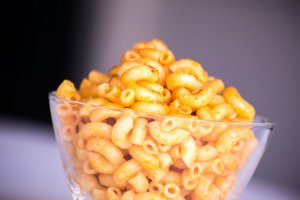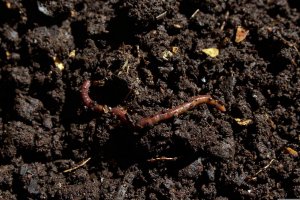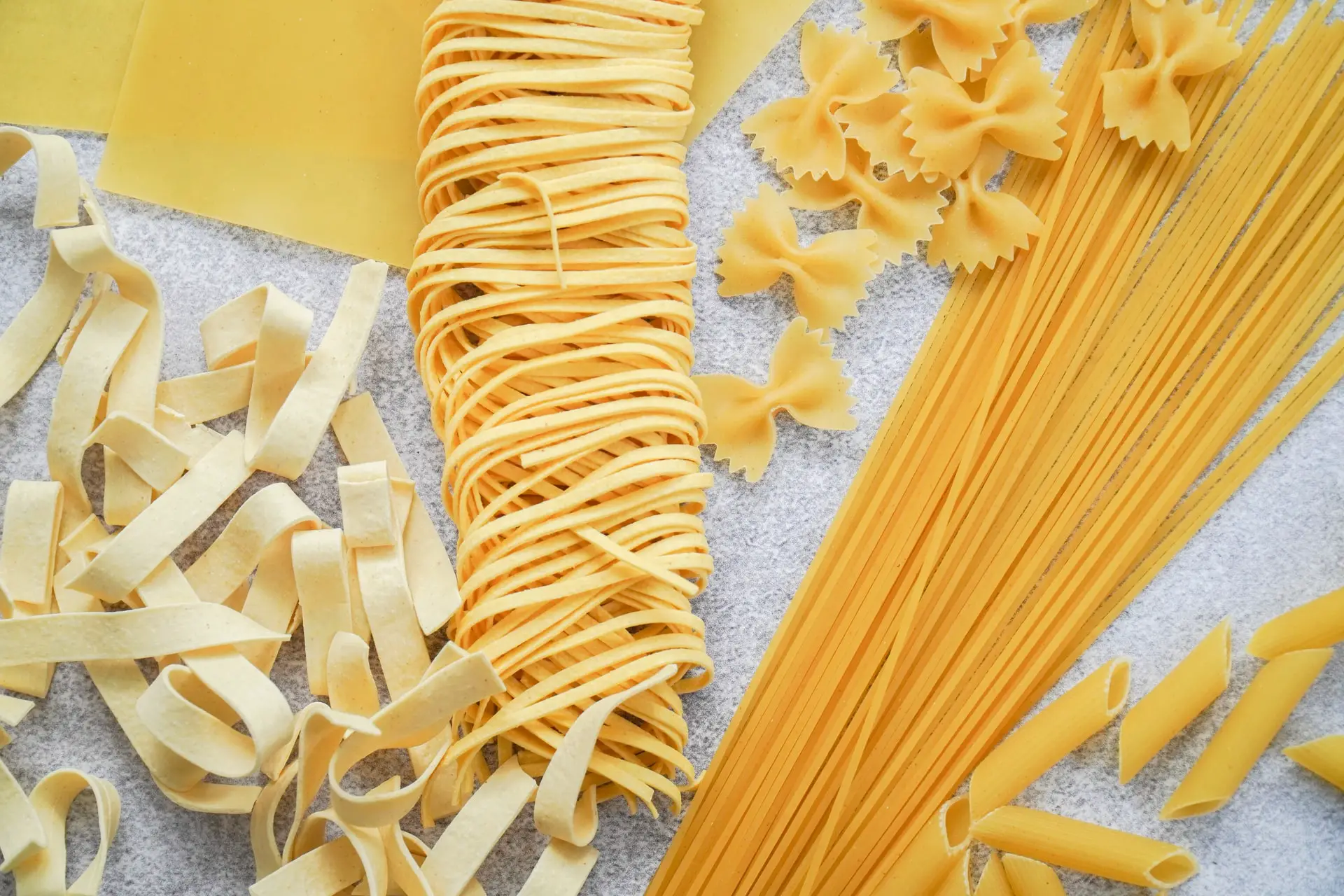Yes, pasta can be composted. Most people think of pasta as a carbohydrate, it actually contains protein—about 7-8% of its weight. This means that it CAN be composted. While some grains and seeds are taken in by bugs that live in compost piles, it's still fine to throw pasta into a compost pile.
Table of Contents
Can You Compost Uncooked and Leftover Pasta?
Although it’s common to assume that uncooked pasta won’t decompose because it is not soft, this isn’t the case.
Uncooked pasta takes longer to decompose; therefore, some steps should be followed for the process to occur quickly and not attract pests. It would be best to break the noodles into smaller pieces before composting them.
When dealing with leftover pasta, it may be covered with other foods such as cheese, sauce, or meat. Take more precautions.
Leftover pasta may attract rodents, unwanted pests, and vermin, which will consume all the food scraps compost or even destroy the composition of the overall composite. These pests may also litter the compound and bring diseases such as rabies into the compound.
Furthermore, rodents and vermin produce bacterias that are harmful to plants. Ensure that the composite bin is securely closed to keep them off.
Alternatively, you can use a compost tumbler. Another way of avoiding rodents, pests, and flies is to bury pasta deep inside the heap and then cover it with carbon-rich materials.
By doing this, pests and rodents will not feel the smell.
Can You Compost Macaroni & Cheese?

Macaroni is a type of pasta, therefore it is fine to compost it. In 2008, The Green Guide studied what could and couldn’t be composted. Their findings?
Yes, it’s okay to compost macaroni and cheese. The only problem is that the smell of pasta attracts rodents and pests.
However, this can easily be solved by putting the macaroni and cheese deep inside the bin before adding other composite materials.
Kitchen wastes end up in landfills, and with the recent green campaigns, more and more people are working on reducing the amount of waste in landfills. Composting pasta is one way you can help in maintaining environmental sustainability.
How to Compost Pasta in 4 Steps
When composting pasta, you can compost the dry uncooked pasta and mix it with other materials or make it wet by putting it into warm water for some time until it is soft.
1. Prepare the Compost Bin
Ensure that the bin has holes. The holes help with air circulation in and out of the compost bin.
2. Find a Good Spot for the bin
A good spot should be a place that rodents cannot access: highly ventilated, in the sun’s direction, and flat enough.
3. Add the Compostable Materials
This is a case where you are compositing pasta with other materials to get well-balanced manure.
For easy decomposition, if it is raw pasta, break it into smaller pieces and mix it with other materials such as sawdust, dried leaves, and shredded cardboard.
When composting pasta leftovers, remove other food scraps such as fish or meat. And if cooked pasta has plenty of water in it, dry it first, then mix it with other dried brown materials.
Add hays as a floor in the compost bin, then add the brown materials with pasta. On top of that, add other brown composites without pasta.
Lastly, add green compostable materials.
Ensure that every layer of brown is followed by green. The one with pasta should be the first layer from down to the top. Pasta should be put in moderation.
The cooked pasta should be placed the lowest to keep away rodents and pests that would otherwise get attracted to the smell.
4. Turn the Compost Every Three Weeks
Turning helps in creating and conserving heat in the compost. Besides, it enables aeration of the compost. Both processes are vital for the decomposition process.
How Long Does It Take for Pasta to Decompose?
In most cases, it takes about 3 months to decompose pasta. It can take more than 6 months if mixed with other foods that take longer such as pineapple, avocado pits, and unchopped cardboard.
To ensure that the process happens faster, chop pasta into small pieces.
Is Pasta Green or Brown Compost?
One of the main nutritional components of pasta is carbohydrates, and chemically, carbohydrates have hydrogen, oxygen, and carbon, carbon being the highest component and making pasta a brown compost material. The brown composts usually have more carbon than other organic matter.
Most people who compost avoid it because it is starchy food. However, using effective composting methods and adding it in moderation with other compostable materials is advised.
Can You Put Pasta in a Worm Bin?

Yes, you can put pasta in a worm bin but in moderation.
First of all, pasta is not worms’ favorite food since it has starches. Secondly, it does not get broken down easily.
Adding too much of it makes pasta moldy and fermenting, resulting in a stinky mess before the warms can eat it.
3 Reasons Why You Should Compost Pasta
The average American throws away over 350 pounds of food per year. Pasta is one of the foods that is easy to prepare and is consumed in most households. It often becomes part of the leftovers thrown away. There is a need to reduce this amount.
Here are the top reason why it is vital to compost pasta:
1. To reduce the amount of waste in the landfills.
Most food wastes, including pasta, end up in landfills and incinerators, where it takes up an astonishing amount of space and generates harmful greenhouse gasses.
Even though composting doesn’t help much with the greenhouse gas problem because it occurs so slowly, reducing the amount of wasted food sent to landfills.
Reducing this amount is important because of landfills’ significant impact on global warming. It is a step closer to zero waste.
Furthermore, when you throw your food scraps into the landfill, they tend to come into contact with other garbage. Garbage doesn’t decompose as quickly as organic matter does; there’s less oxygen present when the organic matter does break down.
That’s why landfills have an unpleasant odor—they’re filled with garbage that is not rotting.
Composting helps prevent this because the organic garbage is being separated right away and allowed to decompose naturally, without sitting in a pile next to non-compostable garbage and taking up oxygen that would otherwise go towards breaking down other materials.
2. It is composed of organic materials that are good for the soil.
It may be tempting to toss it into the garbage when you’re done with it, but if you compost it instead, you’ll be doing much good for the environment.
Pasta is composed of several organic materials good for the soil, like wheat flour and garlic. These materials will rot down quickly, enriching your garden with nutrients.
3. Pasta can help balance the moisture level in the bin.
Pasta is rich in nitrogen. Most materials that are usually rich in nitrogen become very wet; therefore, adding too many of them can lead to too much moisture.
However, pasta is dry. It will add nitrogen and offset moisture or wetness from other products in the bin by absorbing it.
To summarize, pasta can be effectively composted whether cooked, uncooked, leftover or with cheese and other kitchen scraps.
However, if it is cooked, place it deep inside the composite bin for its smell not to attract rodents and unwanted pests.
Encouraging the composting of pasta is good for the environment since it reduces the amount of waste in landfills. Besides, it has good nutrients for the soil.

